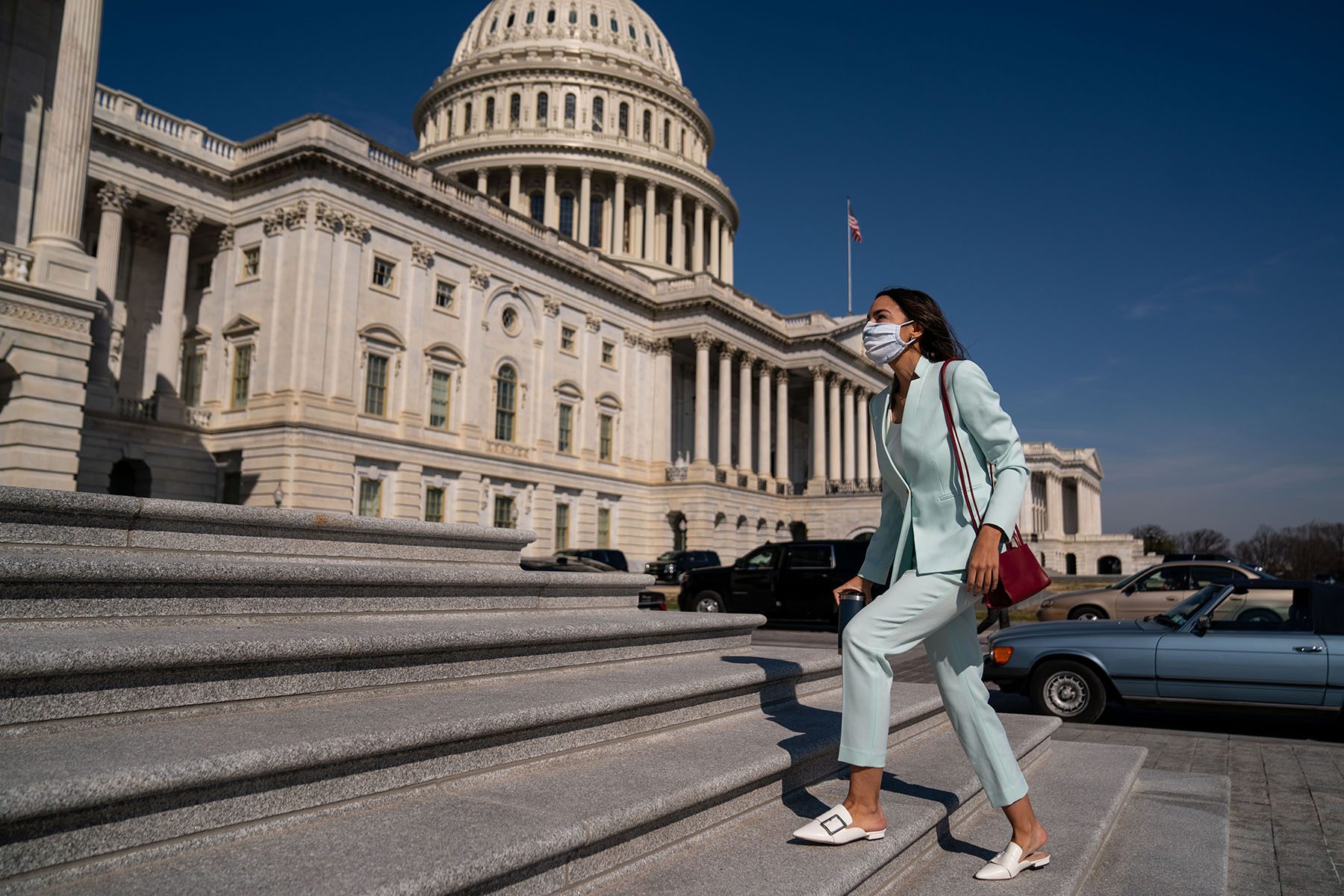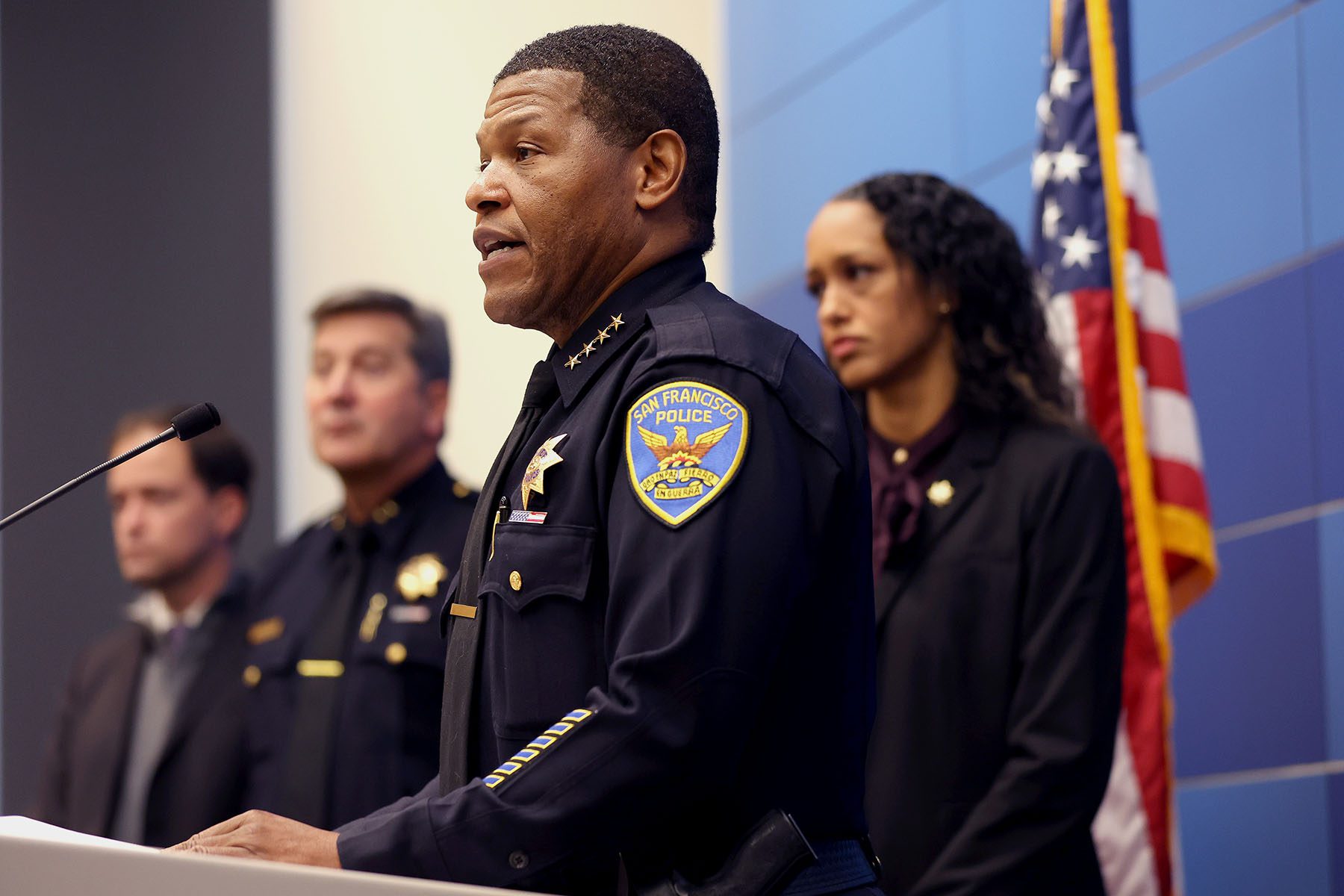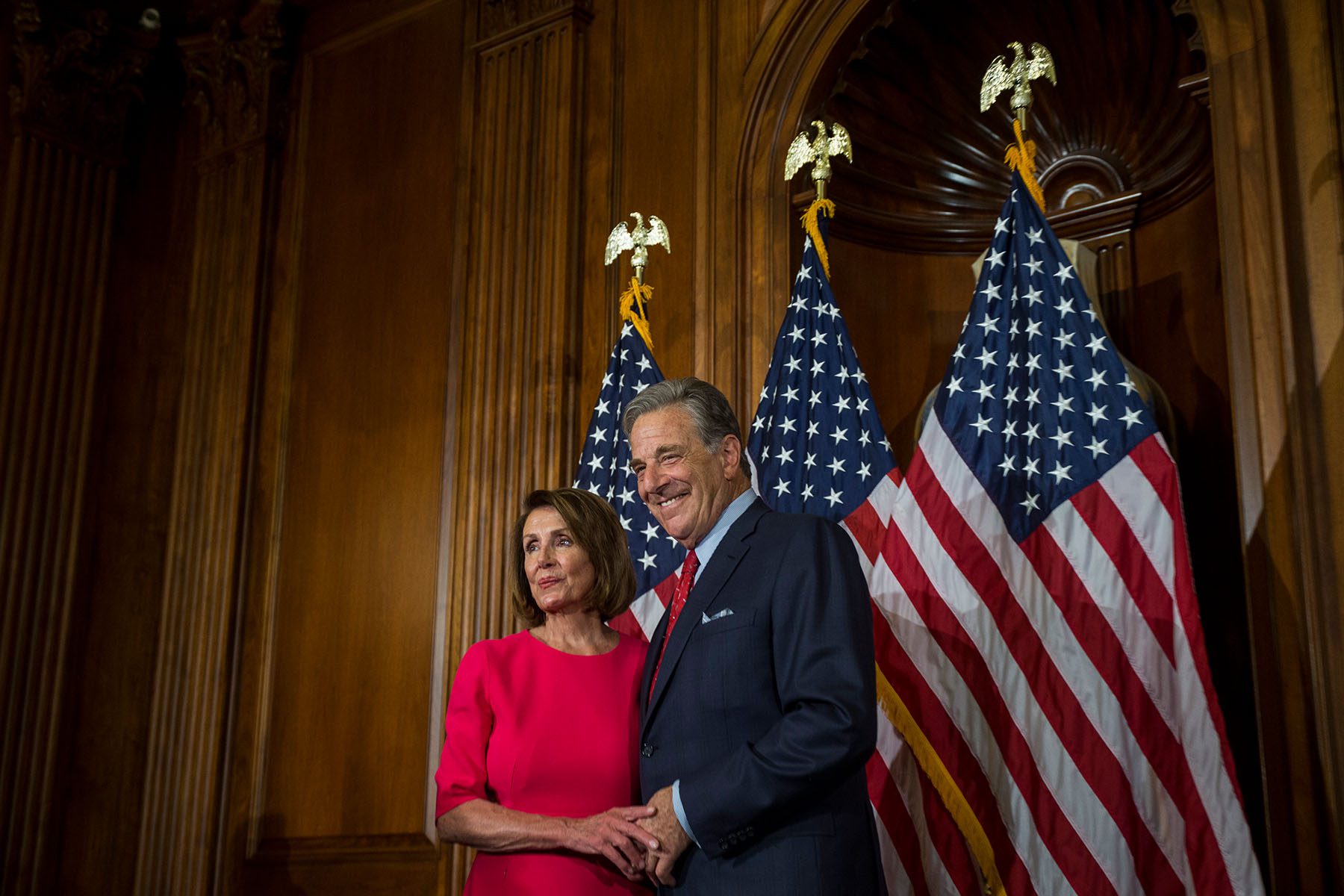The man charged with breaking into the home of House Speaker Nancy Pelosi and assaulting her husband was reportedly yelling, “Where is Nancy?” echoing some of those who attacked the Capitol on January 6, 2021.
That question — and the suspected targeting of one of the most powerful women in American politics — points to a form of violent misogyny that is part and parcel of larger threats to American democracy, say experts who study and track gendered political violence.
Pelosi, who is second in line to the presidency, has long been the focus of negative political ads and campaign rhetoric. But the attacks have become more layered with threats of violence and misogyny, and social media has allowed them to spread more easily. It’s both dangerous to Pelosi and other women in positions of power and discouraging to women who might otherwise run for office, experts say.
“Certainly Nancy Pelosi has long been a very obvious public figure and has long been a target for those on the right — partly because of her positions, but certainly because of her gender, which has played a role in the way she is talked about and how much vitriol is directed her way,” Jean Sinzdak, an associate director of the Center for American Women and Politics (CAWP) told The 19th.
“It’s easy to be dismissive and say, ‘Oh well of course you get animosity directed your way because you’re in a leadership role.’ But there is a gender-based element that goes way further than that in someone breaking into her personal space and feeling entitled to be violent against her,” Sinzdak said.
While physical violence and the threat of it have long impacted people in power, it’s often heightened when it comes to women in office. In 2011, a man shot then-Rep. Gabby Giffords while she met with constituents at a grocery store; the Arizona Democrat survived the attack, but several people were killed and injured.
In 2020, several men were arrested on suspicion of plotting to kidnap Democratic Michigan Gov. Gretchen Whitmer. Three men were convicted in the case last week.
In 2021, Alexandria Ocasio-Cortez — one of several Democratic women of color in Congress who have spoken out about threats of violence — was the focus of vitriol after Republican Rep. Paul Gosar shared an anime-style video that depicted the congressman killing her.
“What we’re seeing in the tenor of some of the attacks against not just Pelosi but other women in public positions is this idea of, ‘Who are you that you think you can be in charge’ and ‘I will do what I can to undermine this,’” Sinzdak said.

Sarah Sobieraj, a sociology professor at Tufts University and author of “Credible Threat: Attacks Against Women Online and the Future of Democracy,” pointed to how extreme rhetoric has evolved over time and can surface as real-life attacks.
Sobieraj has studied the creation and rise of the “outrage industry” — a genre of political opinion content that spans cable news analysis, talk radio, podcasts, blogs and op-ed pieces, where people use extreme rhetoric as a dominant form of discourse to generate feelings like anger, moral indignation and disgust. Over the years, that industry has expanded to include politicians of all affiliations using the targeted outrage.
Sobieraj added that one of the core elements of outrage discourse involves an insistence that those with different political beliefs are not people with different interests or priorities, but fundamentally bad people. As she explained it, they are framed as inept, disingenuous, or evil. She called it a recipe for mistreatment of others, whether through online attacks, defamation or physical violence.
“This is a form of speech and rhetoric that is effective in producing ratings and dollars,” she said. “So people are using this rhetoric intentionally for political gain to change people’s thoughts and behaviors.”
Social media has allowed for the rampant amplification of this rhetoric, as well, Sinzdak notes.
“You can spread something so much faster with a crowd online than in person,” she said. “You can find out where a public figure lives; there’s no distance there. Misogyny against women and sexism and violence are not a new phenomenon, but we’re seeing it all heightened so much because of the ability of people to interact on social media.”
Details are still emerging about the attack against the speaker’s 82-year-old husband, Paul Pelosi. The speaker’s office said he was “violently assaulted” Friday at a San Francisco home he shares with his wife, who was not at home during the attack. The office said Paul Pelosi has undergone “successful” surgery to repair a skull fracture and “serious” injuries to his right arm and hands. His doctors expect a “full recovery,” a statement added.
Police have arrested David DePape in connection with the attack. DePape, 42, faces charges that include attempted homicide, assault with a deadly weapon, elder abuse and burglary. On Monday, the Department of Justice added charges of assault and attempted kidnapping.
Federal authorities say DePape struck Paul Pelosi with a hammer following a struggle in the home. Authorities say they observed a broken glass door to the home’s back porch. Among the items removed from the scene were tape, rope, an additional hammer, rubber and cloth gloves and zip ties.
The Los Angeles Times reported that DePape shared conspiracy theories online, including about QAnon and COVID-19.
Some Republicans condemned the attack within hours of initial reports. But other Republicans and right-wing media personalities mocked it over the weekend, sharing disinformation about the circumstances surrounding Pelosi’s injuries.
Mona Lena Krook is a political science professor at Rutgers University and the author of “Violence against Women in Politics.” She said she was alarmed by some commentators using forms of victim-blaming to imply that the speaker should have had more security at her home.
“The idea that you should just expect to receive this kind of violence. If you receive it, it’s your own fault, right? So I think that that’s a really troubling part of the response,” Krook said.
Sobieraj said the attack on Pelosi’s spouse may have a ripple effect on the future participation of people who are willing to enter careers in elected office.
“Whether you are a left or right, it is a mistake not to take an attack like this seriously — not only because of the danger to the person attacked, but because of the danger to the health of our elections and our democracy more generally,” she said. “We absolutely need civil service to be a career that people can enter and engage in. You should not have to fear for your life to serve in public office.”
Krook said it’s important that people in positions of political power and others publicly call out threats of gendered violence to combat it. She said otherwise, its normalization will only worsen conditions for people who aren’t at the highest level of government.
“It’s women at all levels of American politics — governors, women in statehouses, women in local politics, mayors. We are seeing it with election administrators,” she said. “It’s really about women playing a whole wide range of political roles. We just see it more when it’s somebody like Nancy Pelosi.”
Sinzdak said the violence should be seen in the context of challenges to democratic institutions, which have grown in tandem with representation of women and people of color.

“It’s not a coincidence that we’re seeing the rise of some of these antidemocratic movements at the same time as the rise of women in leadership and the rise of people of color in leadership. We’re seeing diversification of our government in more recent years,” Sinzdak said.
Though Pelosi isn’t a new face in American politics, she’s a face that, for many, represents the effort to make American politics more diverse. “This is about gender and race and seeing those groups who weren’t allowed to participate in our system in the earliest days in the same ways they are now facing a backlash to that participation happening,” Sinzdak said.
Sinzdak also tied the attack on Pelosi’s husband to broader efforts to curtail or question rights, including the Supreme Court’s June decision in Dobbs vs. Jackson Women’s Health Organization that ended a federal right to abortion.
“It’s part of the same concerted attacks on women’s rights that we’re seeing with Dobbs and so many other things,” Sinzdak concludes. “There are all of these efforts to curtail women’s rights and that is why we’re also seeing a rise in misogynistic attacks on women candidates and officeholders and why this is so deeply worrisome. It’s about people saying, ‘We want to keep women from getting to a position of power.’ And in the long term, it will have a deeply chilling effect.”






